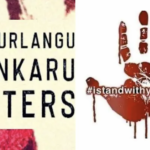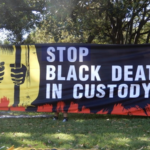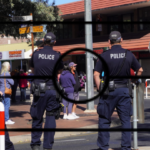Northern Territory Police Commissioner Promises to Reform the Force

It was an historic moment when the Northern Territory’s Police Commissioner delivered an apology to the Indigenous Community for injustices perpetrated by the police force over the past 154 years.
Understandably, peak bodies representing the Indigenous Community have welcomed the apology, although cautiously.
Speaking at the Garma Festival over the weekend, Police Commissioner Michael Murphy, who has been in the top job for a year, made a commitment to change, saying he is “deeply sorry” and will “make every effort to eliminate racism” within the force, repair relationships and develop an “anti-racism strategy”.
A pledge to improve ‘transform and reform’ NT Police
On the Northern Territory Police, Fire and Emergency Services website, his pledge states:
I, Michael Murphy, Commissioner of the Northern Territory Police am deeply sorry to all Aboriginal Territorians, for the past harms and injustices caused by members of the Northern Territory Police.
I formally apologise for the hurt inflicted upon Aboriginal people, and together with my fellow officers, I commit the NT Police service to do the hard work to transform our relationship with Aboriginal Territorians for a safer community for all.
We know that we cannot change or undo the past, but together we can commit to not repeating our mistakes and the injustices.
Systemic racism and history of injustice
The apology comes six months after evidence of extensive racism inside the Northern Territory police was brought to light during a coronial inquest into the 2019 shooting death of Kumanjayi Walker in Yuendumu by police officer Zachary Rolfe who was found not guilty of murder, manslaughter and even the lesser crime of committing a violent act causing death by an all-white jury in 2022.
But the systemic racism goes back much further than that – it has been evident for many many years and the statistics don’t lie. Indigenous incarceration rates in the Northern Territory are amongst the highest in the country.
The number of First Nations Australians in NT prisons is more than 17 times the rate for non-Indigenous Australians.
This became a particularly controversial issue around the time of the Royal Commission into Youth Detention and Child Protection in the Northern Territory.
In 2017, the Royal Commission found that the boys had been subjected to “repeated and distressing mistreatment”, were denied basic needs such as water, and that legal requirements, including limits on the use of force and isolation, were not followed – suggesting the conduct potentially amounted to assault and unlawful detainment.
The Royal Commission also found that Northern Territory police failed to investigate potential criminal conduct in the youth justice system. Further, despite the commissioners referring a number of cases to police for further investigation, no charges have ever been laid. And despite recommending the closure of the notorious Don Dale Youth Detention Facility, it remains open. Recent figures show that more than 90% of the inmates are young aboriginal boys.
Earlier this year, after the Todd Tavern in Alice Springs went under siege, and a riot broke out in the surrounding streets, the state government declared an emergency situation and went into implement a youth curfew and bolstered the police force by an additional 60 officers in order to deal with the increasing anti-social behaviour and unrest in the town. It also increased the number of Police Auxiliary Liquor Inspectors (PALIs). These inspectors have the power to intervene in the sale of alcohol and check customers’ identification to determine whether their residence is an area with alcohol restrictions in place.
It is the typical kind of government response that we’re used to – but what we also know is that more police, expanded police powers and additional weapons supplied to officers for use in the line of duty are never a successful long-term solution and don’t necessarily make communities safer.
The punitive approach does nothing more than create further burden for the justice system, and, in most cases, sets up young people to a life of crime and time, a continuing cycle, in and out of prison.
The need to rebuild trust with its community
The high indigenous population within the Northern Territory means that the crime rates and violence, which have been steadily climbing over a number of years, are deeply rooted in much more complex issues.
A police response is necessary, but there is also an urgent need for a broader response that will actually have an impact on improving the lives of young indigenous people, who have been blamed for the rising unrest.
What comes next, of course, is real accountability. And while there have been calls for the NT Police Chief to show he’s serious by ‘sacking’ all the racist members of the police force, generally, the response to the apology, including from the Aboriginal and Torres Strait Islander social justice commissioner, Katie Kiss, and race discrimination commissioner, Giridharan Sivaraman, is hopeful.
Many indigenous people are open to change, and the idea of a ‘new era’ but this can only occur through sustained effort to ensure that the Commissioner’s words are, in time, backed by real action, and real results.







